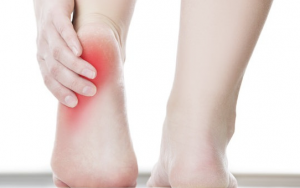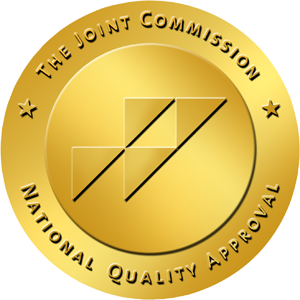Plantar Fasciitis: Most Common Cause of Heel Pain
 According to the American Academy of Orthopaedic Surgeons (AAOS), nearly two million patients are treated for plantar fasciitis every year, making it the most common cause of pain on the bottom of the heel.
According to the American Academy of Orthopaedic Surgeons (AAOS), nearly two million patients are treated for plantar fasciitis every year, making it the most common cause of pain on the bottom of the heel.
The AAOS indicates that plantar fasciitis occurs when the strong band of tissue (plantar fascia) that supports the arch of your foot becomes irritated and inflamed. The plantar fascia absorbs the tension and strains we place on our feet, but sometimes, too much pressure damages or tears the tissues. Plantar fasciitis can develop without an obvious cause in most cases. Known causes of the condition include tighter calf muscles, obesity, very high arch, running and sports. The Mayo Clinic lists several risk factors for developing plantar fasciitis:
- Age. Plantar fasciitis is most common between the ages of 40 and 60.
- Certain types of exercise. Activities that place a lot of stress on your heel and attached tissue — such as long-distance running, ballistic jumping activities, ballet dancing and aerobic dance — can contribute to an earlier onset of plantar fasciitis.
- Foot mechanics. Being flat-footed, having a high arch or even having an abnormal pattern of walking can affect the way weight is distributed when you’re standing and put added stress on the plantar fascia.
- Obesity. Excess pounds put extra stress on your plantar fascia.
- Occupations that keep you on your feet. Factory workers, teachers and others who spend most of their work hours walking or standing on hard surfaces can damage their plantar fascia.
Many people with plantar fasciitis have heel spurs, but spurs are not the cause of plantar fasciitis pain, according to the AAOS. Therefore, plantar fasciitis pain can be treated without removing the spur. Your doctor may order additional imaging to confirm that your heel pain is caused by plantar fasciitis and not another problem. Nonsurgical treatment for plantar fasciitis includes rest, ice application, non-steroidal anti-inflammatory medication, stretching the calves and plantar fascia and cortisone injections. Supportive shoes, orthotics and night splints are also recommended. In some cases, physical therapy is suggested, and surgery is only considered after all nonsurgical treatment options have been exhausted.
Carmichael’s Pharmacy and Durable Medical Equipment locations offer medications, supportive shoes, orthotics and night splints to aid in the relief of plantar fasciitis. Contact a Carmichael’s representative or visit any of our locations for assistance or more information.




 Accredited/Certified by The Joint Commission
Accredited/Certified by The Joint Commission